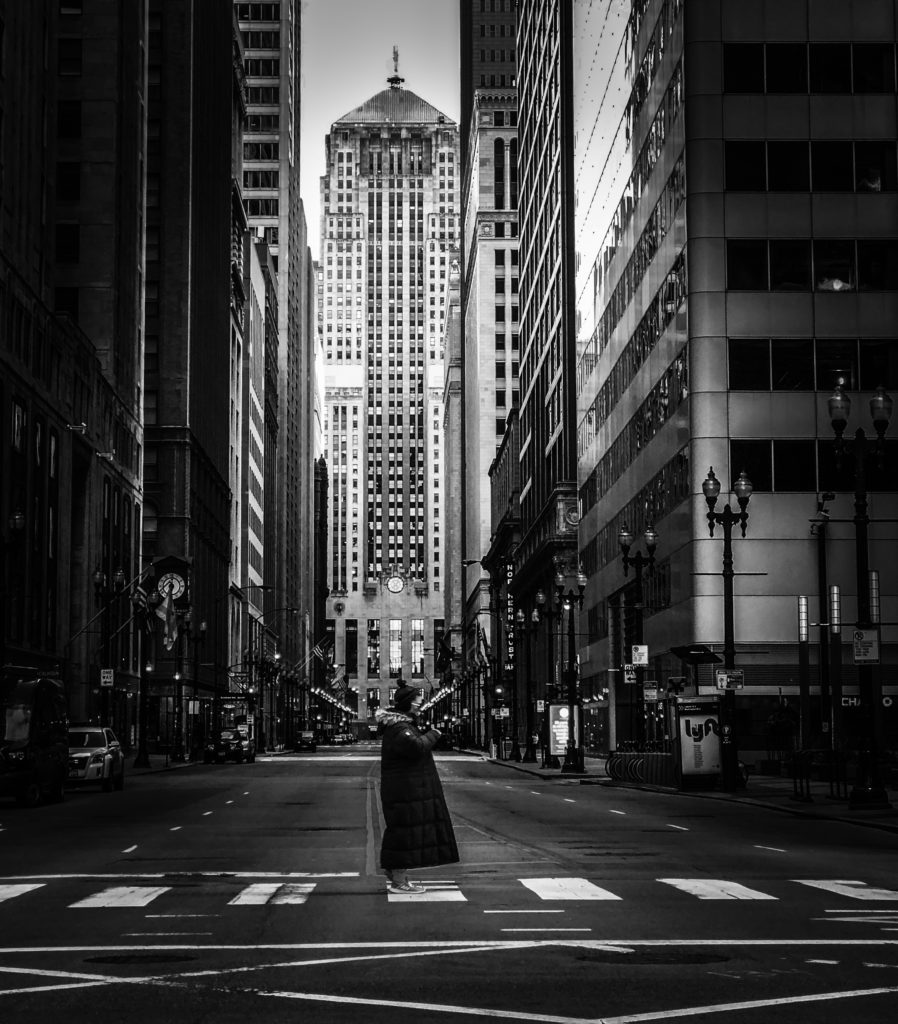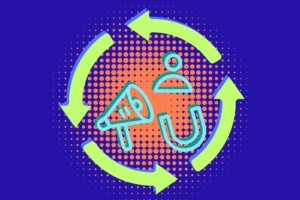Last Updated on May 11, 2020 by admin

We are in the midst of a crippling, devastating crisis. It’s certainly one of the most impactful crises in my lifetime. And I am afraid. I am afraid for the people who are deathly ill with COVID-19. I am afraid for the people who find themselves out of work and struggling to provide basic necessities for themselves and their families during an already stressful time. I am afraid for those who were without homes and basic necessities before this crisis hit. I am afraid for the health care workers who are risking their lives to ensure that people get the care they need. I am afraid that my parents will get ill and that friends will become symptomatic and that I will get sick.
I am afraid.
This is not the first time I’ve been this afraid. I was 16, a junior in high school, when the events of 9/11 unfolded. I was young enough to feel helpless and old enough to understand the gravity of what had taken place. Watching people jump from high floors in tall buildings in Mrs. Vyborny’s physics class seared my spirit with a dark, new reality. Lives were lost. Everything changed in an instant. My friend described to me the close call of a loved one: her dad was running late for a scheduled meeting in one of the towers but realized he had left his wallet in a taxi and ran out of the building before the first plane struck. We went to war. People went to battle — and stayed there — for years, with little respite in between tours. I was afraid then like I am afraid now.
But this is different. Coronavirus is different.
We are all at war today. Every person in every country across the planet is battling an unseen enemy with an understocked arsenal on an unknown timeline. This panic-inducing reality has altered the day-to-day lives of every single person alive. We are in this together, for better or worse.
So how do we get through this together?
There are already plenty of opportunities to help. I see people setting up funds for members of the service industry who are out of work. There are groups of people sewing face masks for health care workers on the front lines of this battle. Tech-savvy helpers are building websites to help coordinate connecting supplies like N95 masks with the demand from various hospitals. Neighbors are helping their elderly neighbors shop for groceries. Businesses are offering free or discounted services to those who need them most. People are coming together and connecting, even if the social distancing order means that connection must be separated by six feet of space. This gives me hope.
I have hope.
It’s been nothing short of inspiring to watch the helpers rise up to meet the endless challenges of the battle we’re in. Helping out where I can has also restored a small sense of sanity back into my life. As surely as the dismal news and soaring death counts populate the front pages of physical and digital newspapers do these wildly radical actions of love take place — a lifeline of hope in the rushing waters of reality.
There’s another way we can all help. It doesn’t cost any money or require travel. All that’s needed is one good ear, a spirit of empathy, and the willingness to be vulnerable.
Storytelling can be the respite we all need in this deluge of heartbreak and uncertainty. It is picking up the phone when mom or dad calls from across the country — or across the street — to listen to them talk how this pandemic is affecting them. It is taking some time before the Zoom meeting to allow coworkers to share what it’s like to work from home while homeschooling a 9-year-old or what it’s like to live alone, devoid of face-to-face human interaction. It’s setting up a Google Hangout so friends can share a virtual dinner and discuss how they’re managing in constant close quarters with significant others and spouses. It’s mouthing “how are you?” to your neighbor across the street when you’re both out to get the mail.
It will be taking the time, when this darkness has passed and the quarantines are lifted, to connect with that neighbor you never introduced yourself to before we found ourselves immobilized by a virus that measures between .05 and 0.2 microns. To share a cup of coffee with a stranger — or simply to say hello to them and smile. To volunteer time to a cause you hold dearly that enables you to hear the stories of people you’ve never met before and perhaps might not have otherwise. It’s a smile directed at the postal worker making sure your sister’s birthday gifts make it to Boston. It’s a nod to the bus driver on your route home. It’s a high-five to the other runner braving the wintry slush on the same boulevard as you. It’s more “Thank-yous” and “I love yous” and “How can I help?”
“But those aren’t all stories.”
Aren’t they, though? Aren’t these simple phrases and tiny gestures our contributing sentence to the narrative of humanity? The smile that says “I see you, and I understand how you love.” The nod that says “I appreciate you; thank you for getting me home safely to my family.” The high-five that says “I feel you and respect you and we are strangers having a shared, albeit brief, experience.” These actions are not merely footnotes to the lives we live…they are the plot thickeners, arcs, and the rising and falling actions. They’re the guts, the good stuff, the reason we all tune in.
Beyond listening, it is — and will be — about sharing our own stories and experiences. That means being vulnerable about our own fears and imperfections. And it means being vulnerable with our joy, too. The deepest gifts we can give to others are often woven into the words we speak and the actions we take. When we open our hearts up fearlessly and let people see inside, we are offering up a valuable part of ourselves that has the power to salve open wounds in others.
At least this has been my experience in storytelling, both from a professional and personal standpoint. I’ve told them all my life, in one format or another, and I’ve enjoyed the benefits of being on the receiving end, too. I find comfort in the idea that storytelling can ease our collective pain and buoy our collective hope. My thoughts aren’t meant to be prescriptive. My words and my experience are what I have to offer, and I’m laying them down for anyone willing to pick them up. It’s been a privilege to watch simple stories have a wildly transformative impact on people’s lives and it’s my hope that we will see that same positive outcome here. Today. Tomorrow. Whenever we opt to tap into the magical, generous, healing power of storytelling.
For those interested in other ways to help, take a look at some of the opportunities here.



